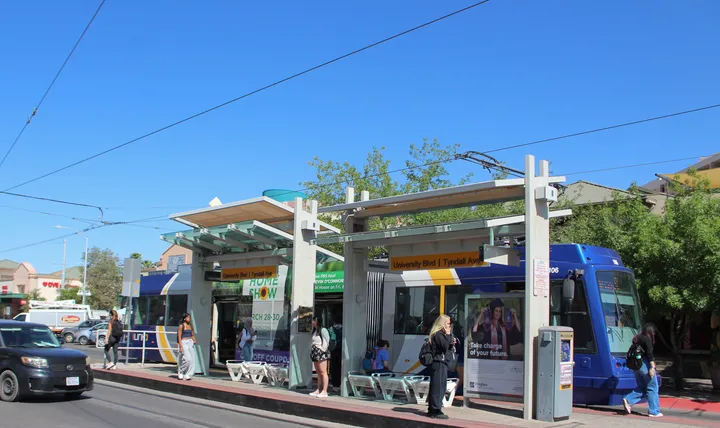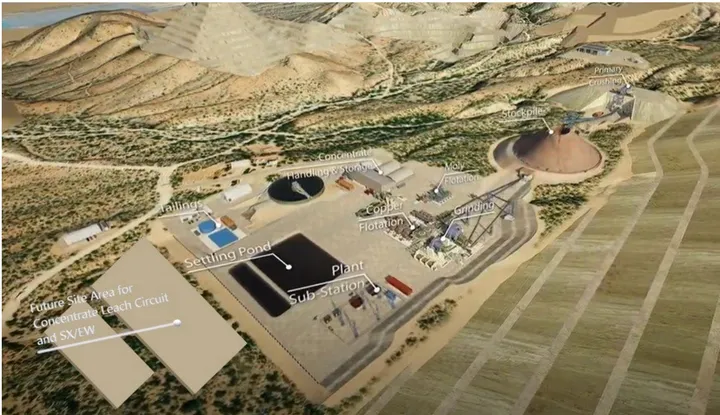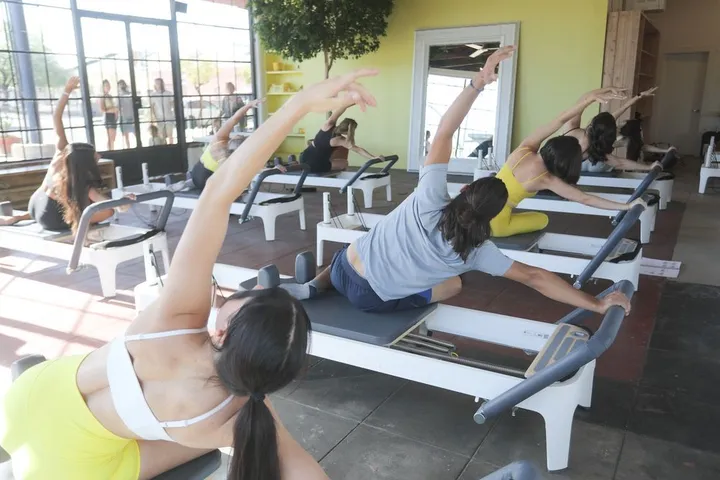Tucson adds third 'cooltainer' to heat relief network
Tucson has expanded its network of portable “cooltainers” this summer, providing additional relief amid extreme heat warnings.
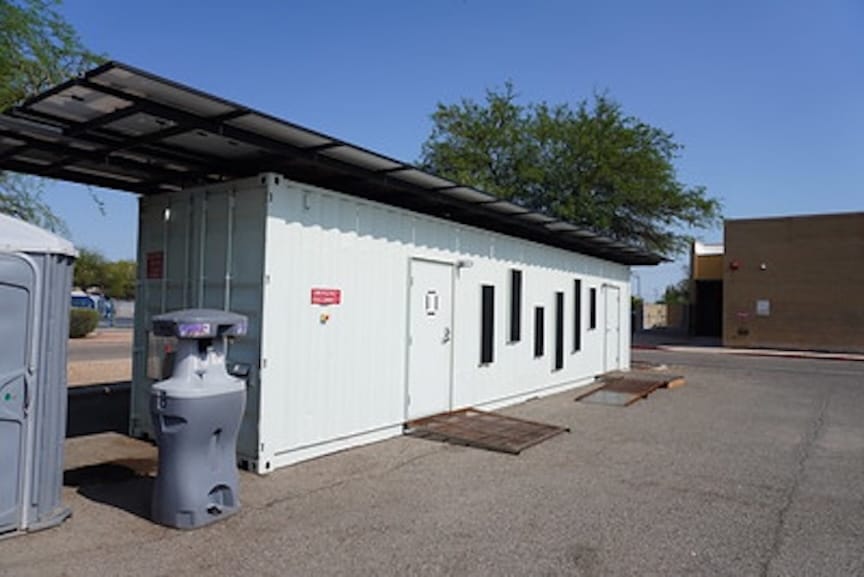
With Tucson under an extreme heat warning all week and heat-related illnesses surging across Arizona, the state is turning to an unlikely solution to keep people safe: retrofitted shipping containers transformed into life-saving cooling centers.
Three portable “cooltainers” are now part of the city’s existing network of roughly 30 cooling centers and six water stations. The units are part of Gov. Katie Hobbs’ extreme heat preparedness plan, which emphasizes the critical role of accessible cooling centers.
The solar-powered cooltainers are equipped with two doors, windows and portable restrooms, and can hold up to 15 people. Inside, visitors will find snacks, water, electrolyte packets, extreme weather supplies and hygiene items.
“These are open to everyone and anyone who needs them, whether you just need relief on the way to or from visiting one of our agency offices, your AC went out at home, you are experiencing homelessness or any other reason,” said Hannah Moulton Belec, the Arizona Department of Administration’s deputy assistant director of communications.
The ADOA acts as an administrative and business operations hub for the state government, providing centralized support services to various state agencies.
Last year, the Arizona Department of Health Services reported 5,974 heat-related emergency room visits. Unsheltered individuals face a 200 to 300 times greater risk of heat-related illness, according to the University of Arizona’s Making Action Possible Dashboard.
“We wanted to make sure that rural communities and tribal communities benefited from receiving these cooltainers, as well as the cities,” Maren Mahoney, director of the Office of Resiliency, said during a June “Living with Extreme Heat” seminar.
The state has refurbished 18 shipping containers, with the Arizona Department of Administration operating two and distributing the rest to local partners across the state, including the Tohono O’odham Nation, Pima County and the city of Tucson.
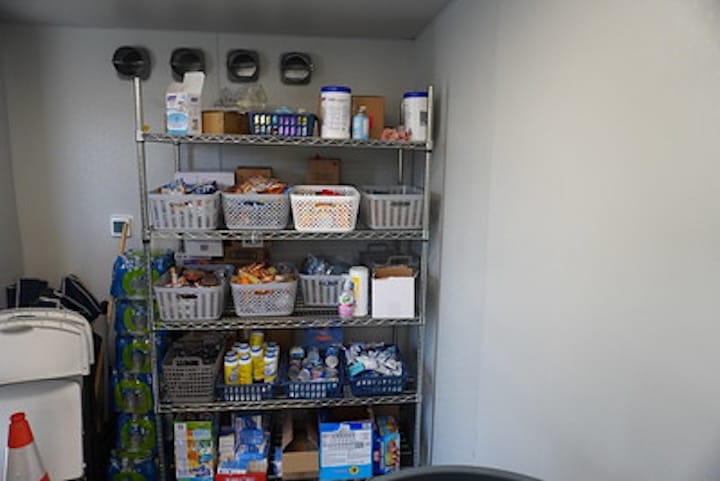
Mahoney said the state is working on adding wheels to the cooltainers to make them truly mobile and accessible to more rural and tribal communities. More than 400 cooling centers were available statewide last year.
Each cooltainer took about two months to repurpose, with the efforts funded by the American Rescue Plan Act. The $1.9 trillion economic stimulus package was designed to address ongoing public health crises and provide relief during the COVID-19 pandemic to individuals, families and businesses.
In Phoenix, the cooltainers have seen more than 4,200 visits this summer, according to the ADOA’s Belec, who said that average daily use climbed as high as 191 visits in late June.
The city received its first two cooltainers last year, operated by the department of Housing and Community Development from mid-June through September. They were stationed near the Amazon Flats project — west of Miracle Mile — which is transforming the former Amazon Motel into permanent supportive housing for low-income residents, including those experiencing homelessness.
The state also sent a cooltainer to Ajo last year, with then-District 3 Supervisor Sylvia Lee saying at the time that the resource would provide much-needed and welcome relief from frequent electrical outages during the monsoon season.
“District 3 is unique in that many of the communities we serve are rural, which can make providing resources more challenging,” Lee said in a news release.
This summer, the city of Tucson added a third cooltainer to its network, stationing it at the El Pueblo Community Safety Hub, located at 135 W. Irvington Road.
“In the month of June we served 509 individuals 473 times,” said Community Services Manager Allison Chappell. “The feedback I’ve received from the staff operating the cooltainers is the folks that are utilizing this service are extremely grateful to have space where they can come and seek respite from the heat.”
Arilynn Hyatt is a journalism major at the University of Arizona and Tucson Spotlight intern. Contact her at arilynndhyatt@arizona.edu.
Tucson Spotlight is a community-based newsroom that provides paid opportunities for students and rising journalists in Southern Arizona. Please consider supporting our work with a tax-deductible donation.

